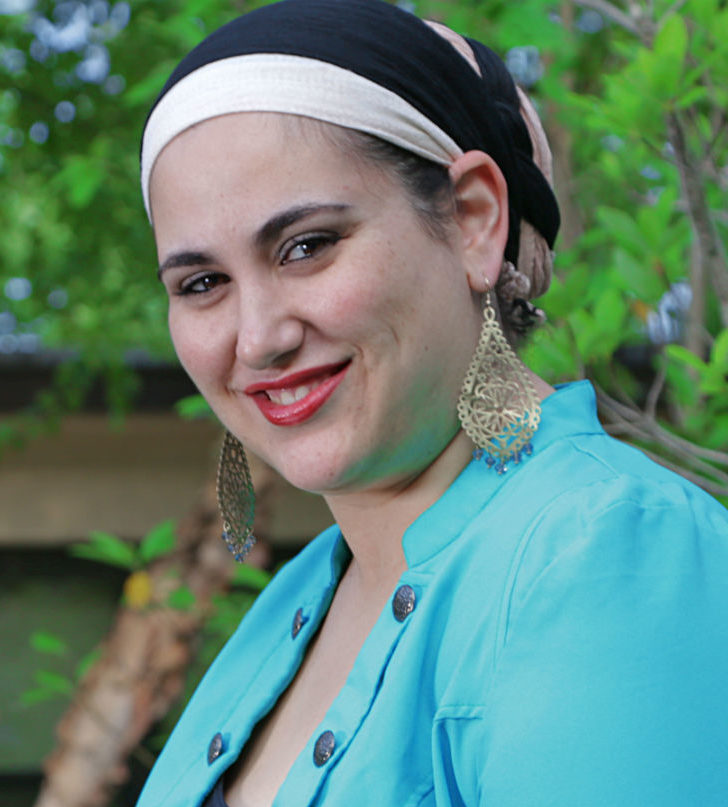“Shabbat Shirah” is so-named because its reading contains Shirat Ha-Yam, the Song of the Sea. In biblical Hebrew, the word shirah usually denotes a poem rather than music or strophic song in its commonly-known modern Hebrew sense. Many congregations use this opportunity to create special musical programming, taking the latter translation of “Shabbat of Song.” Alas, we often find ourselves naïvely communing around music, forgetting here that the lyrics of this particular “Song” are powerful, substantial, and complicated.
The Song of the Sea is a declaration of freedom, an ode to the militant God who has just miraculously overcome the Egyptians who enslaved and seek to re-oppress the Israelites. “I will sing to God for He has triumphed gloriously / Horse and driver God has hurled into the sea,” the poem begins (Exodus 15:1). Miriam the Prophetess echoes this same phrase at the poem’s close (Exodus15:21). The poetry here is so powerful that it permeates our liturgy every day: we recite the poem in full in our first service of each day, P’sukei D’Zimrah (Verses of Praise), we recite Mi Khamokha (an excerpt from Shirat Ha-Yam) in the morning and evening, include Adonai yimlokh le’olam va’ed (the last verse of Shirat Ha-Yam) in every Kedushah of the day. One who prays the traditional gamut of liturgy may recite this last verse up to six times daily.
Mishlei (Proverbs) 24:17 declares, “Do not rejoice as your enemy falls, let your heart not rejoice as he falters.” In Pirkei Avot 4:19, Shmu’el Ha-Katan quotes this , though—curiously—he offers no explication of. The Bartenura (Italian, 15th century) explains that one would not want to show “that you regard God as your agent to fulfill your desires.” That is, to rejoice over an enemy’s fate somehow indicates that God is acting in response to human wishes, rather than in direct response to the evil individual’s actions. Rambam (12th century, Spain and Egypt) on this Mishna notes that Shmu’el Ha-Katan would often warn against rejoicing at the expense of our enemies using this verse, so it was as if he said it originally. Shmu’el Ha-Katan’s message is dissonant with the fact that he also composed the Amidah blessing against our enemies (Talmud B’rachot 28b-29a). And yet, Shmu’el Ha-Katan was uncomfortable having composed this blessing – so much so that after a year “he forgot it” though others insisted he continue reciting it. (For a longer discussion, see Jeffrey M. Cohen’s article in Judaism Quarterly, Spring 1995.)
In context of the biblical story, we can understand and even sympathize with the Israelites’ celebration: the long-lasting yoke of oppression was lifted, and they were watching with catharsis as their oppressors were overtaken in a Divine act. But does the message, that God is militant and destructive to our enemies, ring true to our modern ear?
Many Jews traditionally take a bit of wine out of our glasses as we recite in the Passover seder the ten plagues that were inflicted upon Egypt. Some explain that this custom allows us to recognize that Jewish salvation in the Exodus narrative came at the expense of Egyptian lives, while others explain it as symbolic of revenge, spilled blood, or placation of evil spirits. For centuries, it was important to our ancestors to feel like God would be ready to do the same for them if the need arose, and that is reflected in other parts of the Passover seder liturgy – particularly at “sh’fokh chamat’kha,” in which we call upon God to enact vengeance on our oppressors while welcoming Elijah the Prophet, escort to the messiah, through our open doors.
Western Jews have experienced an unprecedented era of calm in the past several decades, not fearing for our lives from pogroms, hate crimes, and random anti-Semitic acts daily as our ancestors and grandparents did. Though that struggle is not totally abated and our fears have risen in the current political climate, we are still able to see that our enemies are also humans; that our job in repairing the world is to build bridges and facilitate understanding between groups, undermining the hate. Perhaps, then, the daily message of Shirat Ha-Yam is this: In dire moments, when we are unable to protect ourselves, we can rely on our Defender. In all others, we are our own defense.
And thus, the last verse of the poem becomes our charge, a universalistic echo: “You shall bring them in, and plant them on the mountain of Your inheritance — the place, Lord, You made for Your dwelling, the sanctuary, Lord, Your hands established” (Exodus 15:17). Rashi (France, 11th century) points out that this verse uses third-person “them” instead of first-person “we,” because Moses knew he wouldn’t be crossing into the Land of Israel with the nation. Perhaps we can take Rashi’s point one step further, as we ask God to settle “them,” not “us”: It is not enough to deliver ourselves into safety and security; we must envelop every person in that haven.
Let us recognize today our place in God’s sanctuary, and be cognizant that all those we encounter are human, and divine. Let us find ways in which we can make a sanctuary for all who are in need. May we find ways to make music, relish the dissonances, and resolve in harmony.
Cantor Hinda Eisen Labovitz serves a congregation in the Washington, D.C. metro area. She was ordained by the School of Jewish Music at Hebrew College, and continues to enjoy practice and study at the intersection of music and prayer.


